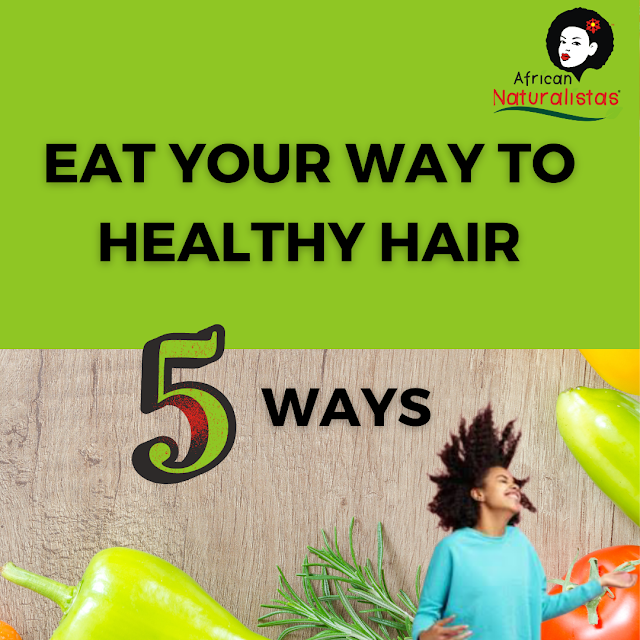When considering healthy hair growth, oftentimes, naturalistas look in terms of the right products, routines/regimes, and protection, either ignoring diet or not taking into high consideration.
The good thing about a healthy diet does not only does your hair benefit, but your entire body would rip the good of this practice.
If you have been following a strict diet, workout routine as well as using the right hair products, protecting your hair, and all there is to do for your natural hair, then check out this instead.
However, if you want to learn these 5 great ways to eat your way to healthy hair, keep scrolling.
Eat Your Water: You guessed right, what tops this list is hydration, but this time orally. As opposed to the topical application of moisture by washing, conditioning, etc, eating your water is one great way to stay hydrated and keep your scalp in good condition. Note, you can't do one without the other.
However, staying orally hydrated greatly impacts hair growth as the water supports the vitamins the hair needs. Dehydration slows down hair growth and can increase the risk of scalp infections like dandruff. Each strand of hair is said to contain about 25% of water which means, the less hydrated your body is, the dryer the hair strands which makes it susceptible to breakage.
Fruits like watermelon, pineapple, oranges, grapes, and vegetables like cucumber, celery have high water content. Therefore, in addition to the 2 liters of water required as the daily intake, you can add these fruits and vegetables to your diet for healthy scalp and hair growth.
Eat your biotin: The hair is composed of a protein known as keratin which needs biotin to be formed. Biotin is essential for healthy hair and low levels of biotin can be associated with weak hair strands and even hair loss. Foods like nuts and seeds, avocados, mushrooms, cheese, salmon are rich in biotin and would provide an adequate dose when added to your diet.
Drink Your Teas: Teas are more than just a beverage. Green tea may help prevent some forms of hair loss as it contains a potent antioxidant called epigallocatechin gallate. Caffeine in some teas helps stimulate the hair follicles and promotes healthy hair growth by suppressing the hormone dihydrotestosterone (DHT) which is responsible for hair loss.
Eat Your Omega-3 Acids: Foods that contain this essential fatty acid have a great impact on having healthy hair as they provide hydration to the hair and scalp. Our bodies cannot produce this on their own, but the Omega-3 acid can be found in foods like tuna, salmon, mackerel as well as other fatty fish.
Take Your Supplements: While supplements might not be the food they contain the necessary nutrients found in healthy diets but in a more absorbable and concentrated form. They are also taken orally and not applied topically like hair products, therefore can also offer additional benefits to having and maintaining hair growth as well as preventing hair loss.
Taking vitamin supplements like B6, B12 and folic acid would help in hair growth. Although, these vitamins can as well be found in foods like bananas, potatoes, Fish, Dairy, and Meat, adding supplements would help boost results. Folic acid can also be obtained from fresh citrus fruits and vegetables like tomatoes.













No comments
Please drop a comment, we want to learn from you.